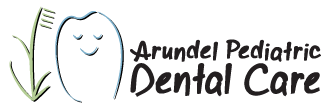Frequently Asked Questions
Do not place the baby tooth back in the mouth. Contact our office as soon as possible.
Find the tooth! Hold the tooth by the crown (top) and rinse it gently using only cool water. Do not scrub it or clean it with soap — use just water. If possible, replace the tooth in the socket and hold it there with clean gauze or a wash cloth. Remember, the smooth side of the crown always faces out.
If you can’t put the tooth back in the socket, place the tooth in a clean container with milk, water, or Hank’s Balanced Salt Solution. You can have this handy at home. Systems containing this solution are available online: Save-Tooth-Emergency-Preserving-System
We can determine if the fracture requires immediate attention. Rinse out your child’s mouth with room temperature water and apply cold compresses to reduce swelling. If you can find the broken tooth fragment, bring it with you to our office.
Please call us for prompt assessment and scheduling. We will also give you guidance for what to do to help make your child comfortable. Do not put heat or aspirin on the sore area.
Yes. Mouthguards can significantly reduce sports and impact-related injuries to the teeth. Talk to us about our low cost mouthguards.
Why do children suck on fingers, pacifiers or other objects?
This type of sucking is completely normal for babies and young children. It provides security. For young babies, it’s a way to make contact with and learn about the world. In fact, babies begin to suck on their fingers or thumbs even before they are born. Most children stop sucking on thumbs, pacifiers or other objects on their own between two and four years of age. However, some children repeatedly suck on a finger, pacifier or other object over long periods of time. Every person is different on how severely the habit will effect their teeth. Also the duration and intensity of the habit is the determining factor for effect on teeth. As a result, our recommendations for stopping the habit will depend on your child’s teeth.
When should I worry about a sucking habit?
We will carefully watch the way your child’s teeth come in and jaws develop, keeping the sucking habit in mind at all times. Habits will be encouraged to stop based on how severe the effect is on your child’s teeth. In some cases, stopping the habit prior to age two is important, but for most children we have more time.
What can I do to stop my child’s habit?
Most children stop sucking habits on their own, but some children need the help of their parents and their pediatric dentist. When your child is old enough to understand the possible results on their teeth,
we can show give tips and encouragement to help your child stop. If this approach doesn’t work, there are alternate options we can discuss that will be suitable for your child’s age.
Are pacifiers a safer habit for the teeth than thumbs or fingers?
Thumb, finger and pacifier sucking all affect the teeth essentially the same way. However, a pacifier habit is often easier to break.
